Water is the essence of life, yet access to clean and safe drinking water remains a global challenge. With rising pollution levels, increasing industrial waste, and climate change-induced water scarcity, the need for advanced water filtration technology has never been more critical. Scientists and engineers are working tirelessly to develop cutting-edge solutions that enhance water purification efficiency, ensuring sustainable and safe water for future generations. This article explores the water filtration future by highlighting the latest innovations and technologies that are revolutionizing the industry.
The Growing Need for Advanced Water Filtration
The World Health Organization (WHO) reports that nearly 2 billion people worldwide consume contaminated water, leading to severe health conditions such as cholera, dysentery, and typhoid. Additionally, the United Nations projects that by 2025, half of the world's population will be living in water-stressed areas. These alarming statistics underline the urgency for water filtration innovation to mitigate the looming crisis.
Breakthroughs in Water Filtration Technology
As concerns about water quality intensify, researchers have developed groundbreaking water filtration technology to remove contaminants more effectively and sustainably. The following are some of the most promising advancements in the field:
Graphene-Based Filtration Systems
Graphene, a one-atom-thick layer of carbon, has gained significant attention for its exceptional filtration properties. Graphene oxide membranes allow water molecules to pass through while blocking salts and other impurities. Scientists at the University of Manchester successfully demonstrated that graphene-based filters can remove 99% of contaminants from water, making them a promising solution for desalination and wastewater treatment.
Nanotechnology in Water Filtration
Nanotechnology is another revolutionary water filtration innovation that enhances purification efficiency at a microscopic level. Nano-filters, often made from carbon nanotubes or silver nanoparticles, can target specific contaminants, including heavy metals, bacteria, and viruses. Research has shown that nanomaterial-based filters can reduce bacterial contamination by 99.9%, offering an advanced solution for regions struggling with microbial pollution.
Reverse Osmosis Advancements
Reverse osmosis (RO) has long been a staple in water purification, but recent developments have made it even more effective. New membrane materials, such as thin-film nanocomposite (TFN) membranes, improve water permeability and filtration efficiency while reducing energy consumption. Modern RO systems are also integrating artificial intelligence (AI) and automation to optimize water flow and monitor system performance in real time.
Solar-Powered Water Purifiers
As the world moves towards sustainable energy, solar-powered water filtration technology is gaining traction. These systems use solar energy to power filtration processes, making them ideal for remote areas with limited electricity access. Studies indicate that solar-powered filtration units can produce up to 10 liters of clean water per hour, significantly improving water availability in underserved communities.
Bio-Based Water Filters
Nature-inspired filtration systems are emerging as an eco-friendly alternative to traditional purification methods. Researchers are exploring the use of plant-based materials like moringa seeds, coconut husks, and biochar to develop sustainable filters. A study published in the Journal of Environmental Science highlighted that moringa seed-based filters could remove up to 99% of turbidity from water, presenting a cost-effective solution for developing countries.

Smart Water Filtration Systems
The integration of Internet of Things (IoT) technology into water filtration is transforming the way we monitor and maintain purification systems. Smart filters equipped with sensors can detect contaminants in real time, alert users about necessary maintenance, and even adjust filtration settings based on water quality data. These systems enhance efficiency and ensure continuous access to safe drinking water.
The Role of Governments and Industries in Water Filtration Future
To accelerate the adoption of cutting-edge water filtration technology, governments and industries must collaborate on policy frameworks, funding, and large-scale implementation. Several nations are already investing heavily in advanced filtration solutions. For instance, Singapore has developed a National Water Strategy, which includes integrating advanced membrane technologies to achieve water sustainability.
Private-sector companies are also stepping up, with major corporations like Xylem, Veolia, and Pentair investing in next-generation water filtration innovation. Startups are playing a crucial role as well, introducing novel filtration products that cater to both residential and industrial needs.
Challenges and Opportunities in Water Filtration Innovation
Despite significant progress, the water filtration future faces several challenges. High costs, limited access to advanced materials, and resistance to adopting new technologies remain hurdles. Additionally, waste management from filtration systems, such as brine disposal from desalination plants, requires sustainable solutions.
However, the potential benefits outweigh the challenges. Advancements in modular filtration systems, where multiple technologies work together, offer a promising approach. Furthermore, increased awareness about water conservation and filtration can drive greater investment in research and development.
Conclusion
The future of water filtration is being shaped by groundbreaking innovations aimed at addressing the world's growing water crisis. From graphene-based filters and nanotechnology to AI-driven smart systems and bio-based purifiers, water filtration technology is evolving to meet the demands of a rapidly changing world. Governments, industries, and individuals must embrace these advancements to ensure a future where clean and safe water is accessible to all. By investing in sustainable and efficient water filtration innovation, we can pave the way for a healthier and more water-secure planet.
Discover the future of water filtration with BoostedOxygenWater! Our cutting-edge filtration technology ensures pure, high-quality water, leveraging graphene-based filters, nanotechnology, and AI-driven smart systems. Perfect for wholesalers, our innovative solutions provide safe, sustainable, and cost-effective hydration for businesses and communities. Stay ahead of the competition with eco-friendly, next-generation water purification. Partner with BoostedOxygenWater today and offer your customers the best in water filtration innovation. Let’s discuss how our wholesale solutions can elevate your business! Schedule a call with our team now to explore bulk pricing and partnership opportunities. Clean water, brighter future!
Reference:
1. Ang, W. (2021). Polymeric reverse osmosis and forward osmosis membranes for water desalination., 113-170. https://doi.org/10.21741/9781644901632-5
2. Cescon, A. and Jiang, J. (2020). Filtration process and alternative filter media material in water treatment. Water, 12(12), 3377. https://doi.org/10.3390/w12123377
Hegazy, M., Essam, A., Elnaggar, A., & Hussein, E. (2021). Heavy metal removal from the water of the river nile using riverbank filtration. Water, 13(24), 3642. https://doi.org/10.3390/w13243642

